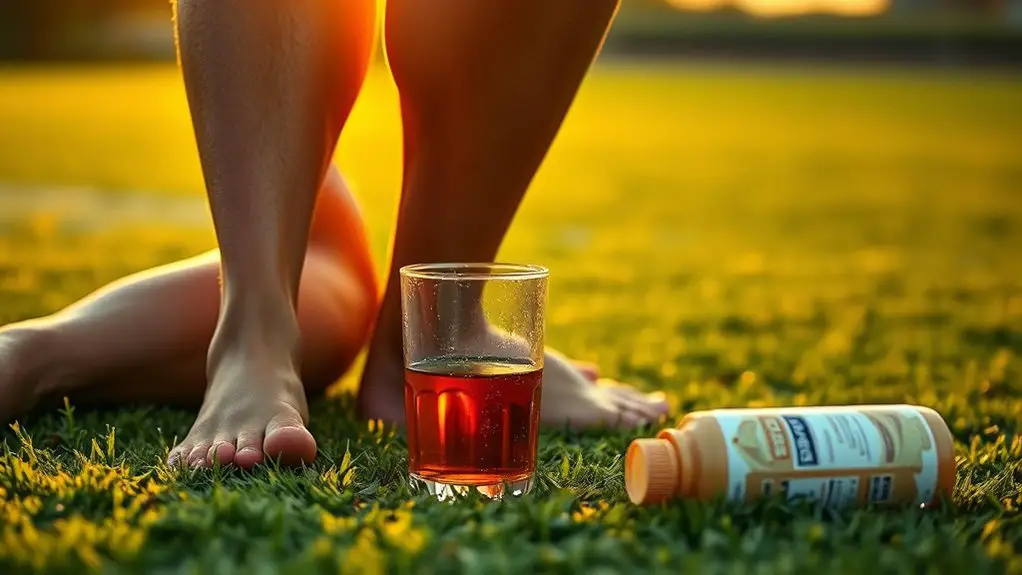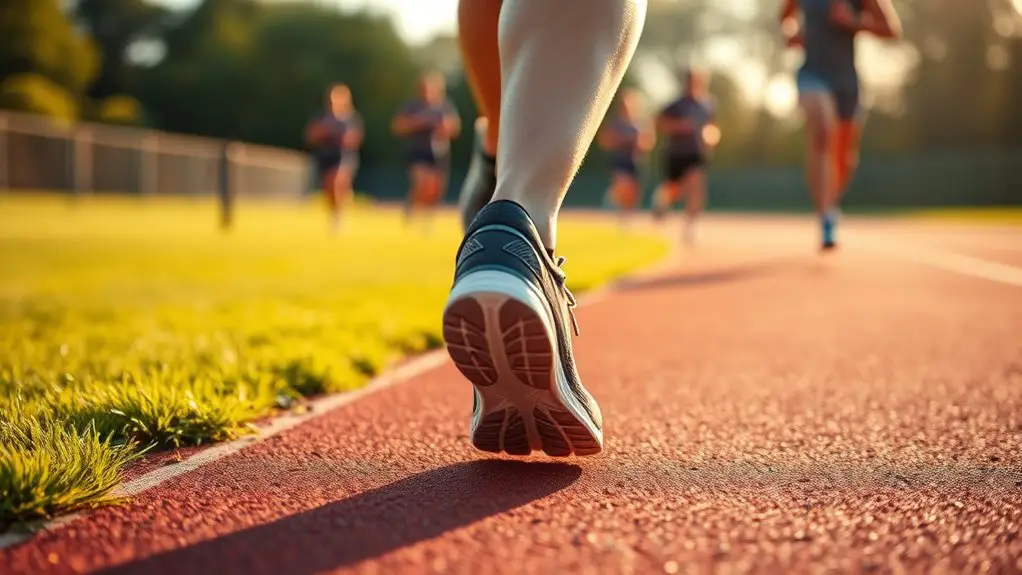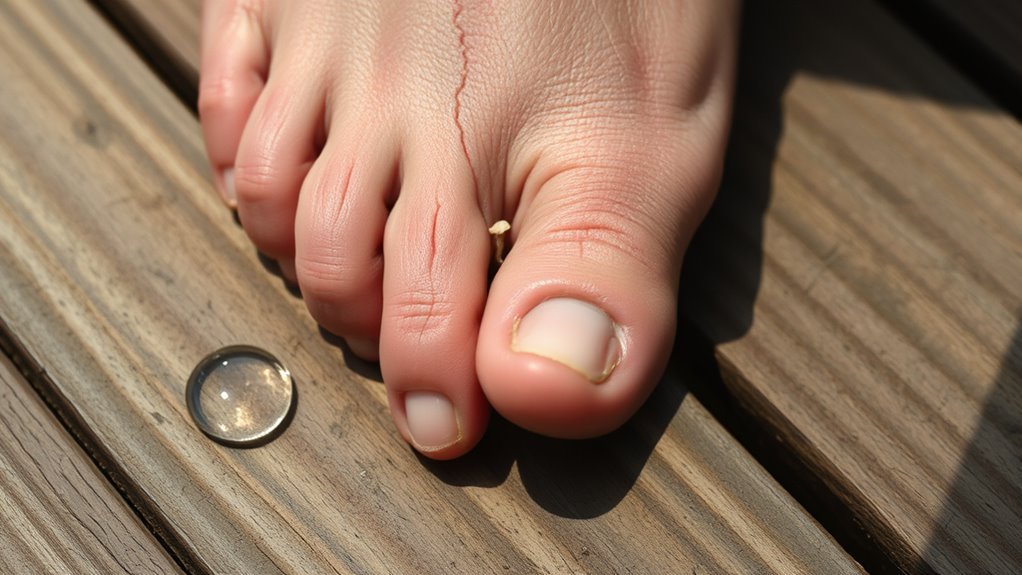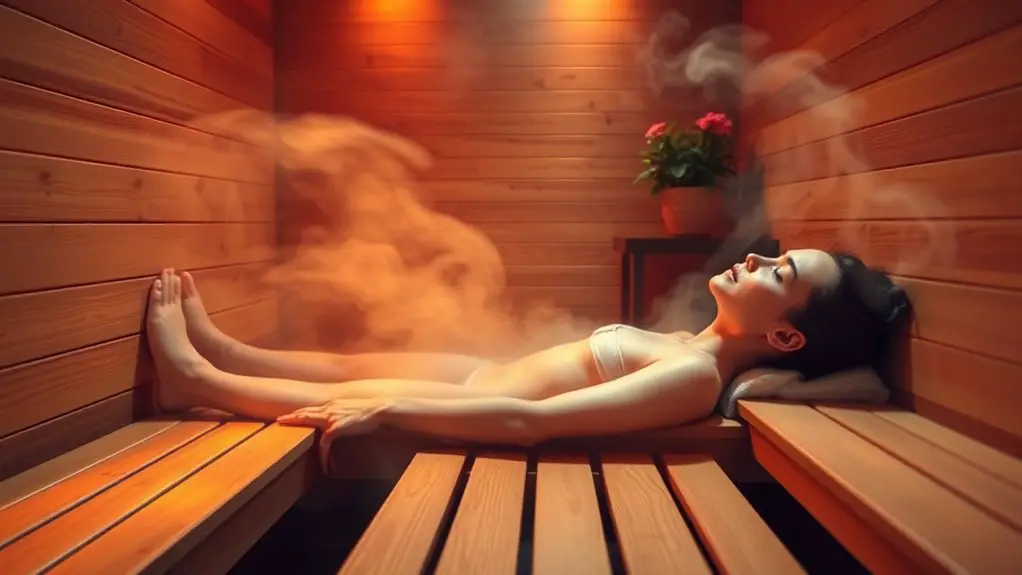Alcohol negatively impacts your muscle recovery as it hinders protein synthesis, leads to dehydration, and disrupts sleep quality. This means your body struggles to repair and rebuild after workouts. Additionally, alcohol increases inflammation, prolonging soreness and delaying recovery. It's essential to be mindful of when you drink and how much. Understanding these effects can help you make better recovery choices, and there's more to discover about responsible alcohol consumption and its impact on performance.
The Role of Alcohol in Muscle Recovery
When you consume alcohol after a workout, it can greatly impact your muscle recovery process. While you might enjoy unwinding with a drink, it's vital to recognize how alcohol affects your body. It can lead to dehydration, which is important to avoid when you're trying to recover. You might feel relaxed, but alcohol can interfere with your sleep quality, leaving you less refreshed the next day. Additionally, it can dull your senses, making it harder to listen to your body's needs. For those who value freedom in their fitness journey, staying aware of these effects can empower you to make choices that support your recovery. Enjoying life is important, but balance is key to achieving your fitness goals and feeling your best.
Effects of Alcohol on Protein Synthesis
Although you might not realize it, alcohol consumption can markedly hinder protein synthesis, an essential process for muscle repair and growth. When you drink, it affects the signaling pathways that promote muscle protein synthesis, leading to reduced recovery and growth. This means your hard work in the gym won't pay off as much as it could. Alcohol also interferes with the availability of key amino acids, the building blocks of protein, making it tougher for your body to recover. You might think a drink or two won't hurt, but even moderate intake can slow down the muscle rebuilding process. If you're serious about your athletic performance, consider how much liberty you give alcohol and how it might be holding you back.
Hydration and Alcohol Consumption
Proper hydration is essential for muscle recovery, and alcohol can greatly disrupt this balance. When you consume alcohol, it acts as a diuretic, leading to increased fluid loss. This can leave you feeling dehydrated, which can hamper your recovery efforts. You might think a drink is just a way to unwind, but it can throw off your body's hydration levels. Without adequate hydration, your muscles may not repair themselves as effectively, leaving you sore and sluggish. If you're serious about your performance, it's vital to balance your fluid intake with any alcohol consumption. So, enjoy your freedom, but remember to stay hydrated to support your body's recovery and keep those muscles feeling their best.
Inflammation and Healing Processes
Alcohol's impact on hydration isn't the only concern for muscle recovery. It also plays a significant role in inflammation and healing processes. When you drink, your body may struggle to manage inflammation, which is essential for recovery after intense workouts. Alcohol can increase the levels of pro-inflammatory cytokines, making it harder for your muscles to repair themselves. This can lead to prolonged soreness and delayed recovery. If you're aiming for peak performance, you'll want to take into account how alcohol might interfere with your body's natural healing mechanisms. Staying aware of these effects gives you the freedom to make informed choices about your recovery strategy, allowing you to enjoy life without compromising your athletic goals.
Timing: When to Drink and When to Avoid
When considering your workout routine, knowing when to indulge in alcohol can greatly impact your muscle recovery. If you've just finished an intense training session, it's best to hold off on that drink for a few hours. Your body needs time to replenish glycogen stores and repair muscles. Aim to hydrate and refuel first.
After a day of hard training, enjoying a drink can fit into your routine, but be mindful of quantity. Avoid drinking right before bed, as it can disrupt your sleep quality, which is vital for recovery. Ultimately, balance is key. Enjoy your freedom to celebrate, but timing is everything when it comes to optimizing your muscle recovery.
The Impact of Different Types of Alcohol
The type of alcohol you choose can greatly influence how your body recovers after a workout. For instance, lighter options like beer or wine may have fewer negative effects compared to hard liquor. Beer, especially those with lower alcohol content, can be invigorating and hydrating, while wine contains antioxidants that might aid recovery. On the other hand, spirits mixed with sugary sodas can lead to dehydration and more severe hangovers. It's crucial to reflect on not just the alcohol content, but also the mixers and added sugars. Ultimately, being mindful of your choices can help you enjoy your freedom without sacrificing your recovery. So, next time you reach for a drink, contemplate how it might impact your hard-earned progress.
Strategies for Responsible Alcohol Consumption
While enjoying a drink after a workout can be tempting, it's essential to adopt strategies that help you balance indulgence with recovery. Here are four tips for responsible alcohol consumption:
- Hydrate First: Drink water before and after your alcohol to minimize dehydration.
- Set Limits: Choose a specific number of drinks, and stick to it to avoid overindulgence.
- Opt for Quality: Select lower-alcohol beverages or those with fewer additives to lessen the impact on recovery.
- Timing Matters: Wait at least an hour post-workout before having a drink, allowing your body to start the recovery process.
Frequently Asked Questions
Can Alcohol Use Lead to Long-Term Muscle Damage?
Yes, alcohol use can lead to long-term muscle damage. It disrupts protein synthesis and recovery, weakening your muscles over time. Moderation's key if you want to maintain strength and overall fitness. Don't underestimate its impact!
How Does Alcohol Affect Sleep Quality for Athletes?
Think of your sleep as a delicate glass sculpture. Alcohol can shatter that beauty, disrupting your rest. When you drink, you're trading quality sleep for a fleeting high, ultimately hindering your performance and recovery.
Does Alcohol Consumption Influence Athletic Performance Directly?
Yes, alcohol consumption can influence your athletic performance directly. It can impair coordination, reaction time, and overall endurance, making it harder for you to perform at your best during training or competitions.
Are Certain Athletes More Affected by Alcohol Than Others?
Some athletes are like superheroes, but alcohol can level the playing field. You'll find that individual factors, like body composition and training, play a huge role in how alcohol affects you compared to others.
What Are the Signs of Alcohol-Related Muscle Recovery Issues?
You might notice increased soreness, longer recovery times, and reduced strength. If you're feeling fatigued or your performance dips, it could be a sign that alcohol's affecting your muscle recovery more than you realize.




